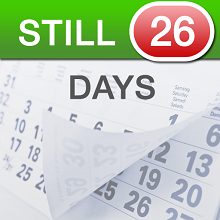As I said in the last post, I’ve spent a lot of my life as a control freak. This has caused me no small amount of trouble. It appears from the Facebook feedback that I am not alone.
Even if control is not your go-to strategy for making the world work for you, it’s something else. Maybe your strategy is people pleasing, or money-accumulating, or security/kudos-chasing. It is just human to develop some life-strategy to make life work for us. The spiritual tradition calls this “the false self.”
We get so habituated to our strategies that we stop thinking of them as ways to make life work, and start thinking of them as “me,” as “self.” The problem is that while the strategies work in some situations, they really don’t work in others. They help us just enough to keep reinforcing their use, but there is a little bit of toxic that seeps into our lives every time we use them.
Control long enough – and soon you stop listening and learning. Keep it up even longer, and you lose intimacy with those close to you. I know this from experience.
.
But the “be secure,” “be safe,” and “make everybody happy” strategies have just as much toxic seepage as the “be in control” one.
 We hold these tactics with a death grip because they make our lives work. But even as they do, their toxicity is slowly killing us. It is only because it is such a slow process that we don’t see it happening.
We hold these tactics with a death grip because they make our lives work. But even as they do, their toxicity is slowly killing us. It is only because it is such a slow process that we don’t see it happening.
What is truly tragic is that so many live out their days on this earth, and never confront or dismantle the toxic false self. Strategies that shrink our worlds, depreciate our happiness, and limit how deeply we can drink from the human experience keep defining us. They become the only version of self we know.
But as we have seen there is a spiritual wisdom given us by the ancients to help us.
– Keep the impermanence of everything in your consciousness.
– Keep your mortality ever in your consciousness.
– Let the inevitability of your own death inform the life you live today.
– Let your mortality inform the attachments you make.
– Let it inform the priorities you set – the energies you expend.
– Let impermanence inform the way you love people.
 I was an early adopter of smartphones, and an app I’ve always used is a countdown timer. For more than a decade I’ve set a timer for all the big events in life. When my daughter was getting married, I started a timer when she set the date (about 300 days). As happens, before long it was at 200 days, then 100, then 50, then 10, and then the day was upon us. To help her get ready for college, I set the timer when she was a sophomore (about 1100 days). Soon it was 900 days, then 600, then 300, then 50, then we were dropping her off at her dorm room.
I was an early adopter of smartphones, and an app I’ve always used is a countdown timer. For more than a decade I’ve set a timer for all the big events in life. When my daughter was getting married, I started a timer when she set the date (about 300 days). As happens, before long it was at 200 days, then 100, then 50, then 10, and then the day was upon us. To help her get ready for college, I set the timer when she was a sophomore (about 1100 days). Soon it was 900 days, then 600, then 300, then 50, then we were dropping her off at her dorm room.
I’ve set timers for the day each of my boys drives away from home:
“Michael, I’ve only got 600 days left to get you ready to thrive out there. Let’s talk about honesty (or some other virtue).”
“Daniel, I’ve only got 200 days left to get you ready to thrive out there. Let’s talk about managing money.”
And every timer I’ve set – has timed out. Except one.
I have a timer set for the average life expectancy of an American male. According to that timer, I have a little over 10,000 days left on this earth. It sounds like a lot, but I’ve been amazed how rapidly each timer I set has zipped by.
“Life is like grass,” the ancient writer said. “It springs up in the morning, and is gone by evening.”
This life we have flies by. It is only our collective and intentional un-consciousness that keeps us from seeing that.
I hope this series of posts helps us see what a steep price we pay for our unconsciousness.
That’s a bit more than 600 words – close to my limit for each blog post.
I’ll conclude this series next week.